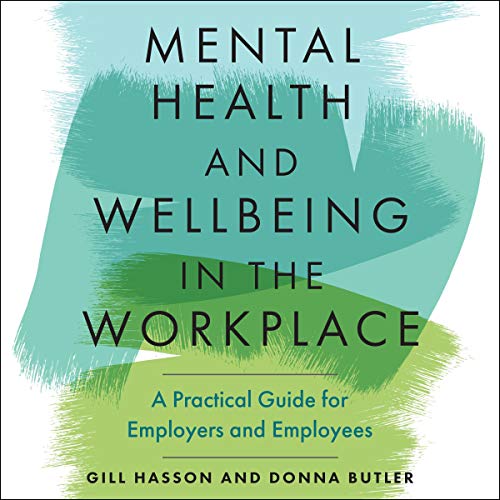Resilience And Mental Wellbeing: A Practical Guide

Understanding Resilience: What It Is and Why It Matters
Resilience is the ability to adapt and overcome adversity. It's not about avoiding stress or hardship, but about bouncing back from difficult experiences and maintaining a positive outlook. Understanding resilience is key to improving your mental health and overall quality of life. Unlike coping mechanisms, which are temporary strategies for managing stress, resilience is a more enduring characteristic that allows you to weather significant life storms.
- Resilience is not the absence of stress, but the ability to adapt and overcome. Resilient people experience setbacks just like everyone else, but they possess the skills and mindset to navigate these challenges effectively.
- Resilient individuals demonstrate adaptability, problem-solving skills, and emotional regulation. They can adjust to changing circumstances, find creative solutions to problems, and manage their feelings constructively.
- Building resilience enhances mental wellbeing, reduces stress, and improves overall quality of life. It equips you with the tools to handle pressure, leading to greater emotional stability and improved mental health.
- Strong resilience is linked to better physical health outcomes. Chronic stress can negatively impact physical health, but resilience acts as a buffer, protecting against the detrimental effects of stress on the body.
Key Pillars of Resilience: Identifying Your Strengths
Several key factors contribute to building strong resilience. Identifying your strengths in these areas is crucial for developing your overall resilience. Understanding your weaknesses allows you to focus on building skills and strategies in those areas.
- Optimism: Maintaining a positive outlook, even during difficult times. Optimists tend to see challenges as opportunities for growth and are more likely to persevere in the face of adversity. Practice gratitude and positive self-talk to cultivate optimism.
- Self-efficacy: Believing in your ability to overcome challenges. Self-efficacy is the belief in your own competence and ability to succeed. Setting achievable goals and celebrating successes can significantly boost self-efficacy.
- Social support: Building and maintaining strong relationships. A strong support network provides emotional comfort, practical assistance, and a sense of belonging. Nurture your relationships with family, friends, and community.
- Problem-solving skills: Developing effective strategies to manage difficulties. Learn to break down problems into smaller, manageable steps and develop a systematic approach to finding solutions.
- Stress management techniques: Practicing relaxation and mindfulness. Techniques like deep breathing, meditation, and yoga can help manage stress and promote emotional wellbeing.
- Emotional regulation: Understanding and managing your emotions effectively. Develop strategies for identifying and managing difficult emotions like anger, sadness, and anxiety. This could involve journaling, talking to a trusted person, or seeking professional help.
Practical Strategies to Build Resilience
Building resilience is an ongoing process that requires consistent effort and self-awareness. Here are some practical strategies you can implement to enhance your resilience:
- Mindfulness meditation: Regular practice enhances self-awareness and emotional regulation. Even short daily meditation sessions can make a significant difference.
- Physical exercise: Regular physical activity reduces stress and boosts mood. Find activities you enjoy and aim for at least 30 minutes of moderate-intensity exercise most days of the week.
- Healthy lifestyle: Prioritizing nutrition, sleep, and hydration is fundamental. A balanced diet, sufficient sleep, and adequate hydration support both physical and mental wellbeing.
- Setting realistic goals: Breaking down large tasks into smaller, manageable steps reduces overwhelm and promotes a sense of accomplishment.
- Seeking support: Connecting with friends, family, or professionals when needed. Don't hesitate to reach out for help when facing challenges.
- Learning from setbacks: Viewing challenges as opportunities for growth and learning. Analyze what happened, identify lessons learned, and adjust your approach accordingly.
- Practicing self-compassion: Treating yourself with kindness and understanding. Be patient with yourself and acknowledge that setbacks are a normal part of life.
The Role of Self-Care in Building Resilience
Self-care is not selfish; it's essential for building resilience. Prioritizing self-care activities helps you manage stress, recharge your energy, and maintain a positive outlook.
- Prioritize activities that bring joy and relaxation. This could involve anything from reading a book to spending time in nature.
- Engage in hobbies and interests. Make time for activities that you enjoy and that bring you a sense of fulfillment.
- Practice gratitude regularly. Focusing on the positive aspects of your life can significantly boost your mood and resilience.
- Set boundaries to protect your time and energy. Learn to say no to requests that drain your energy or compromise your wellbeing.
- Allow yourself time for rest and recovery. Adequate rest is crucial for both physical and mental recovery.
When to Seek Professional Help
While building resilience is empowering, it's important to recognize when professional support is needed. Seeking help is a sign of strength, not weakness.
- Persistent feelings of sadness, hopelessness, or anxiety.
- Difficulty functioning in daily life.
- Suicidal thoughts or ideation.
- Significant changes in behavior or personality.
- Inability to cope with stress or challenges independently.
If you're experiencing any of these, please reach out to a mental health professional. There are many resources available to help, including therapists, counselors, and support groups.
Conclusion
Building resilience is a journey, not a destination. By understanding the components of resilience and implementing the practical strategies outlined in this guide, you can significantly enhance your mental wellbeing and navigate life's challenges with greater strength and confidence. Remember that prioritizing self-care and seeking professional support when needed are crucial aspects of building lasting resilience.
Start building your resilience today! Invest in your mental wellbeing by incorporating these strategies into your daily life and discover the transformative power of resilience for a happier, healthier you. Learn more about enhancing your resilience and mental wellbeing through further research and resources.

 Showbiz Rift David Walliams And Simon Cowells Relationship Reportedly Broken
Showbiz Rift David Walliams And Simon Cowells Relationship Reportedly Broken
 5 Podcasts De Misterio Suspenso Y Terror Recomendaciones Esenciales
5 Podcasts De Misterio Suspenso Y Terror Recomendaciones Esenciales
 Little Britains Future Matt Lucas Addresses Revival Speculation
Little Britains Future Matt Lucas Addresses Revival Speculation
 Chinas Orbital Supercomputer Technological Advancement And Challenges
Chinas Orbital Supercomputer Technological Advancement And Challenges
 The Goldbergs Comparing The Show To Real Life
The Goldbergs Comparing The Show To Real Life
